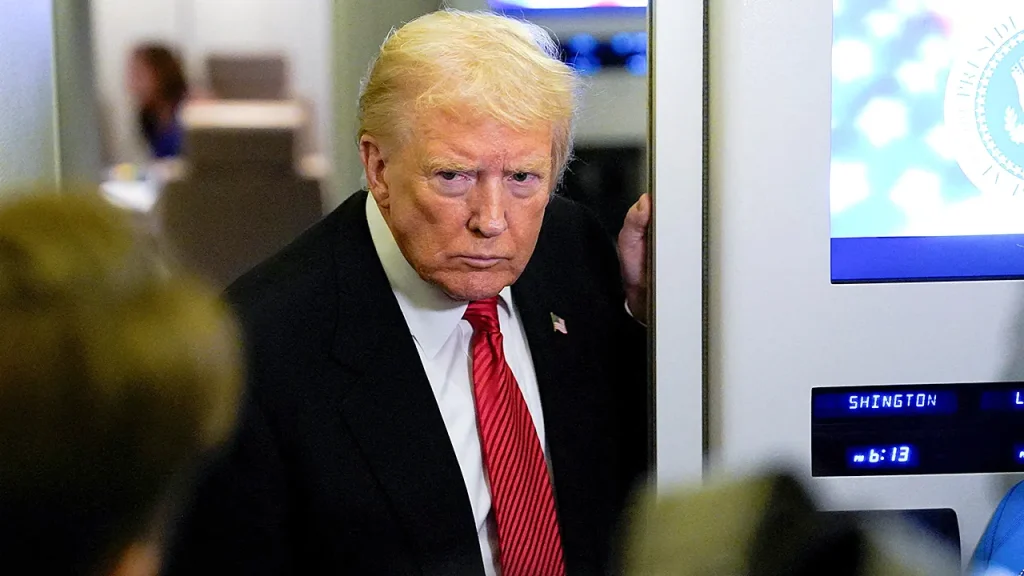Listen to the article
Senate Republicans have blocked a Democratic-led effort to curtail President Donald Trump’s military strikes against Venezuelan vessels suspected of drug trafficking in the Caribbean, allowing the administration to continue its controversial maritime operations.
The war powers resolution, spearheaded by Sen. Tim Kaine (D-Va.), along with Sen. Adam Schiff (D-Calif.) and Sen. Rand Paul (R-Ky.), aimed to halt what has now become 16 separate strikes that have reportedly resulted in 66 deaths, including two in the most recent operation. The resolution failed largely along party lines, with only Paul and Sen. Lisa Murkowski (R-Alaska) breaking ranks with fellow Republicans.
The vote represents a significant victory for the Trump administration’s expanding anti-drug trafficking efforts in the region. President Trump has explicitly justified the operations on two grounds: allegations that Venezuela has “emptied their prisons into the United States of America” and concerns about drug flows from the South American nation.
“We have a lot of drugs coming in from Venezuela, and a lot of the Venezuelan drugs come in through the sea,” Trump stated recently. “So, you get to see that, but we’re going to stop them by land also.”
The resolution’s sponsors argued that the administration should not continue military actions against Venezuela without proper congressional authorization. They contended that any decision to engage U.S. forces “should be answered following a full briefing to Congress and the American public of the issues at stake, a public debate in Congress, and a congressional vote as contemplated by the Constitution.”
In an apparent escalation of U.S. military presence in the region, Trump earlier this week ordered the aircraft carrier USS Gerald R. Ford to the Caribbean as part of the administration’s anti-drug trafficking campaign. This deployment signals the administration’s commitment to sustaining and potentially expanding operations despite congressional pushback.
Prior to the vote, the administration attempted to shore up support by briefing congressional leaders and chairs of the House and Senate Armed Services and Intelligence committees. Secretary of State Marco Rubio and Secretary of War Pete Hegseth led the briefing, which received mixed reviews from lawmakers.
Senate Minority Leader Chuck Schumer (D-N.Y.) expressed dissatisfaction with the information provided, stating, “What we heard isn’t enough. We need a lot more answers.” In contrast, Senate Foreign Relations Committee Chair James Risch (R-Idaho) offered strong support for the administration’s approach, claiming he was “fully satisfied” by the briefing.
“The administration has a good legal justification for what they’re doing,” Risch asserted. “The president really ought to be congratulated for saving the lives of young American people.”
The dispute highlights ongoing tensions between congressional war powers and executive authority in military matters. Critics argue the operations represent an unauthorized military campaign that could escalate into a broader conflict with Venezuela, while supporters view the strikes as necessary counternarcotics efforts.
The Caribbean operations come amid deteriorating relations between the United States and Venezuela. The Maduro government has long been at odds with Washington, with the U.S. imposing numerous sanctions on the country’s economy and leadership.
The failed resolution represents the latest attempt by some lawmakers to assert congressional authority over military actions abroad. Similar efforts to curtail presidential war powers have faced challenges in recent years, often splitting along partisan lines despite constitutional questions about the proper balance of power between the executive and legislative branches in matters of war.
As the Trump administration continues its operations in the Caribbean, questions remain about the long-term strategy and potential for escalation in a region that has become increasingly central to U.S. security concerns.
Fact Checker
Verify the accuracy of this article using The Disinformation Commission analysis and real-time sources.




10 Comments
This vote highlights the tensions between Congressional oversight and the executive branch’s authority over military operations. It will be interesting to see if there are further efforts to constrain the administration’s actions.
Halting these strikes may have implications for the administration’s broader anti-drug strategy in the region. It will be important to monitor how this develops and whether alternative measures are pursued.
I appreciate the attempts at bipartisanship, but ultimately the Senate’s decision reflects the deep political divisions on foreign policy and national security matters. Navigating these issues will require compromise and nuance.
While I understand the desire to combat drug flows, I’m concerned about the precedent this sets for unilateral military actions. Robust congressional debate and oversight is crucial for ensuring accountability.
Drug trafficking is a serious issue, but I’m skeptical that unilateral military action is the best approach. Strengthening international cooperation and focusing on demand reduction could be more effective long-term solutions.
The allegations of Venezuelan drug trafficking are serious, but the legality and effectiveness of the military strikes remain unclear. I hope policymakers can find a more constructive approach to address this challenge.
Interesting to see Republicans and Democrats at odds over this. I’m curious to learn more about the specific justifications and potential implications of the continued maritime operations in the Caribbean.
Agreed, the bipartisan nature of this dispute suggests there are nuances worth exploring further. The public deserves a full accounting of the administration’s actions and their impacts.
This is a complex issue with valid concerns on both sides. While curbing drug trafficking is important, the scope of military action should be carefully considered to avoid unnecessary escalation or civilian casualties.
I agree, the balance between effective anti-drug measures and respecting national sovereignty is delicate. Constructive dialogue between all parties is needed to find a responsible path forward.